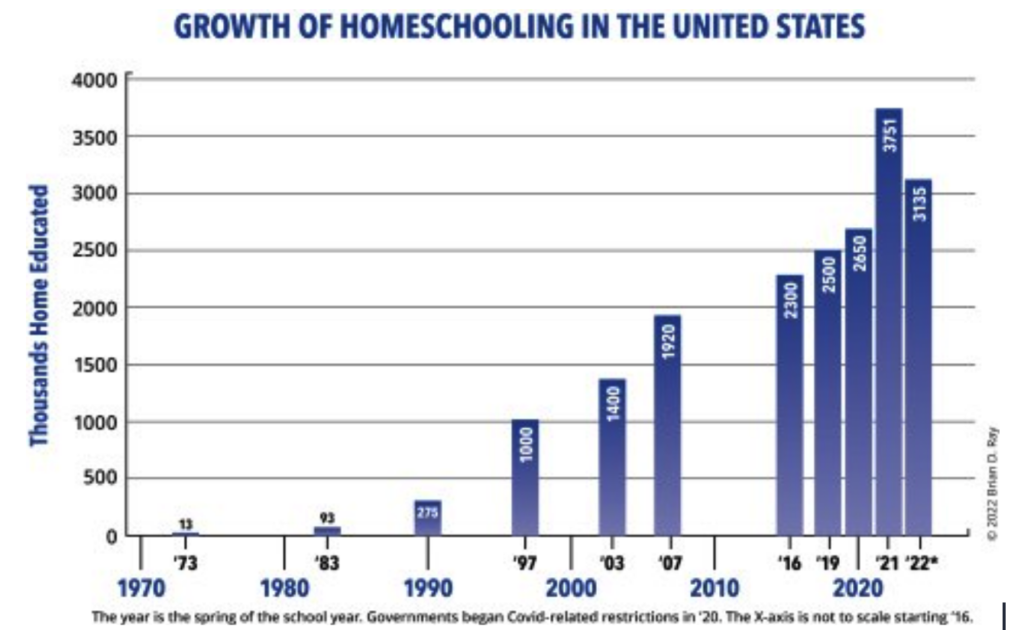Starting Your Homeschooling Journey
Start Homeschooling in 9 Easy Steps

Benefits of Homeschooling
There are many benefits to homeschooling, including:
- Flexibility: Homeschooling allows parents to tailor the curriculum to their child’s individual needs and interests. This can be especially beneficial for children who learn at a different pace or have special needs.
- Personalized attention: Homeschooling allows parents to give their children more individualized attention than they might receive in a traditional school setting. This can help children learn more effectively and feel more confident in their abilities.
- Control over the learning environment: Homeschooling parents have control over the learning environment, which can be a major benefit for families who are looking for a more structured or less structured environment. Homeschooling parents can also choose to focus on specific subjects or topics that are of interest to their children.
- Opportunities for travel and experiential learning: Homeschooling families have the flexibility to travel and learn from the world around them. This can be a great way for children to learn about different cultures and perspectives.
- Parent-child bonding: Homeschooling can be a great way for parents and children to bond and spend more time together. This can be especially beneficial for families with young children.
- Public educators cannot influence the biblical foundations set at home. Parents have the control to teach the morals, virtues, and truths they believe.
Ultimately, the decision of whether or not to homeschool is a personal one. There are many factors to consider, such as your child’s individual needs and learning style, your family’s values, and your budget. If you are considering homeschooling, we encourage you to do your research and talk to other homeschoolers to learn more about the pros and cons.
National Home Education Research Institute (NHERI) is a fact-based homeschool research site where you can find additional research in the realm of homeschool.
Homeschooling Statistics
Highlights of statistics on homeschooling:
- There are 3.7 million homeschool students in the U.S.
- States with the most homeschoolers are North Carolina, Florida, and Georgia.
- The top reason for homeschooling is a concern about the school environment.
- Homeschool students outperform institutional school students academically.
- The highest homeschooling rate is among students with a grade equivalent of 6 to 8.
- 48% of homeschooling households have three or more children.
- The average cost of homeschooling is $700-$1,800 per student annually.
- 1 in 3 homeschooling households has an annual income of over $100,000.
- Homeschooling saves about $56 billion of taxpayer money annually.
Resource: National Home Education Research Institute. 2021. How Many Homeschool Students Are There in the United States? Pre-Covid-19 and Post-Covid-19

National Home Education Research Institute. 2022. Research Facts on Homeschooling
Homeschooling is for Everyone
Myths and Debunking
Many myths about homeschooling are often perpetuated in the media. Some of the most common myths include:
- Homeschooled kids are socially awkward. This is a myth that has been repeatedly debunked by research. Homeschooled kids are often more socially well-rounded than their public school counterparts. They tend to have more opportunities to interact with people of different ages and backgrounds, and they are less likely to be involved in bullying or other forms of social conflict.
- I don’t know enough to homeschool my kids. This is another common myth. While it is true that homeschooling requires a significant time commitment, it is not necessary to have a teaching degree or to be an expert in every subject. There are many resources available to help homeschoolers, including curriculum guides, online courses, and support groups.
- Homeschooling is expensive. This is a myth that is often perpetuated by public school advocates. However, the cost of homeschooling can be quite affordable. There are many free and low-cost homeschooling resources available, and the average cost of homeschooling is only slightly higher than the cost of public school tuition.
- Homeschoolers don’t socialize. This is another myth that has been repeatedly debunked by research. Homeschoolers often participate in a variety of extracurricular activities, including sports, clubs, and community service. They also have more opportunities to interact with their families and extended families than their public school counterparts.
- Homeschoolers do not go to college. This is also a myth. In fact, homeschoolers are more likely to attend college than their public school counterparts. They are also more likely to graduate from college and to attend graduate school.
- Homeschooling parents are stay-at-home moms who don’t work. This is another myth that is often perpetuated in the media. While there are some homeschool families that have stay-at-home parents, many homeschool families have both parents working. In fact, many working parents choose to homeschool their children because it allows them to have more control over their children’s education.
Homeschooling is a viable educational option for families of all backgrounds. It is important to do your research and to choose a homeschooling approach that is right for your family. However, if you are considering homeschooling, weI encourage you to disregard the myths and to explore the many benefits that homeschooling can offer your children.
Sources:
- National Home Education Research Institute. 2021. How Many Homeschool Students Are There in the United States? Pre-Covid-19 and Post-Covid-19: New Data. Link
- National Home Education Research Institute. 2022. Research Facts on Homeschooling. Link
- United States Census Bureau. 2021. Census Bureau’s Household Pulse Survey Shows Significant Increase in Homeschooling Rates in Fall 2020. Link
- National Center for Educational Statistics. 2021. Homeschooled students ages 5 through 17 with a grade equivalent of kindergarten through grade 12, by reasons their parents gave for homeschooling, the one reason their parents identified as most important, and race/ethnicity of child. Link
- EdChoice. 2020. Homeschooling Experiences and Opinions During the COVID-19 Pandemic. Link
- Brian D. Ray (2017) A systematic review of the empirical research on selected aspects of homeschooling as a school choice, Journal of School Choice, 11:4, 604-621, DOI: 10.1080/15582159.2017.1395638. Link
- National Center for Educational Statistics. 2021. Homeschooled students ages 5 through 17 with a grade equivalent of kindergarten through 12th grade, by selected child, parent, and household characteristics. Link
- Time 4 Learning. 2022. How Much Does Homeschooling Cost? Link
Homeschool Laws By State
HOMESCHOOL LEGAL DEFENSE ASSOCIATION
HSLDA is the trusted movement leader that makes homeschooling possible by caring for member families and protecting and securing the future of
Homeschooling. Becoming a member of HSLDA provides a legal umbrella of protection in your homeschooling journey.
Benefits of being a member:
- Personal Legal Advice
- Reliable answers to any legal questions about your homeschool
- Full representation through letters, phone calls, and in court.
- 24/7 hotline for legal emergencies
- One-on-one homeschool coaching
- Tailored help for everyday homeschooling
- Educational consultants help you find curriculum, plan your schedule, discover teaching approaches, solve learning challenges.
Homeschool Laws by state
Homeschool kids with special needs
https://hslda.org/teaching-my-kids/special-needs
Homeschool groups in your area
What People are Saying “Testimonials”
“I thank the Lord for my parents who took the time to homeschool me. I truly believe it was a huge part of my development and it protected me from so many of the ideologies I was surrounded by. Their dedication to my education shaped me and now as an individual in my professional career in Social Work I have reaped the benefits of their hard work.”
“Homeschooling has impacted our family in the best way possible. I am a momma to four kids, two of our boys ages five and seven are special needs. Roman (age 7) was born with Down Syndrome and later diagnosed being on the Autism spectrum. Samuel (age 5) was diagnosed on the Autism Spectrum at age 2. Homeschooling has given our family the ability to teach on our time. As you can imagine life with two kids with special needs is very time consuming. My boys attend many therapies so teaching my children during down time during the weekend is perfect for our family. Also I get to teach my children first and foremost the word of God, which is our firm foundation.”
“We homeschool our three children through classical conversations, a homeschool co-op. It’s been a blessing to have the freedom and options to raise our children according to our values and to be a part of a community where we feel supported as parents and our children get to socialize in a safe environment with like minded friends.”
